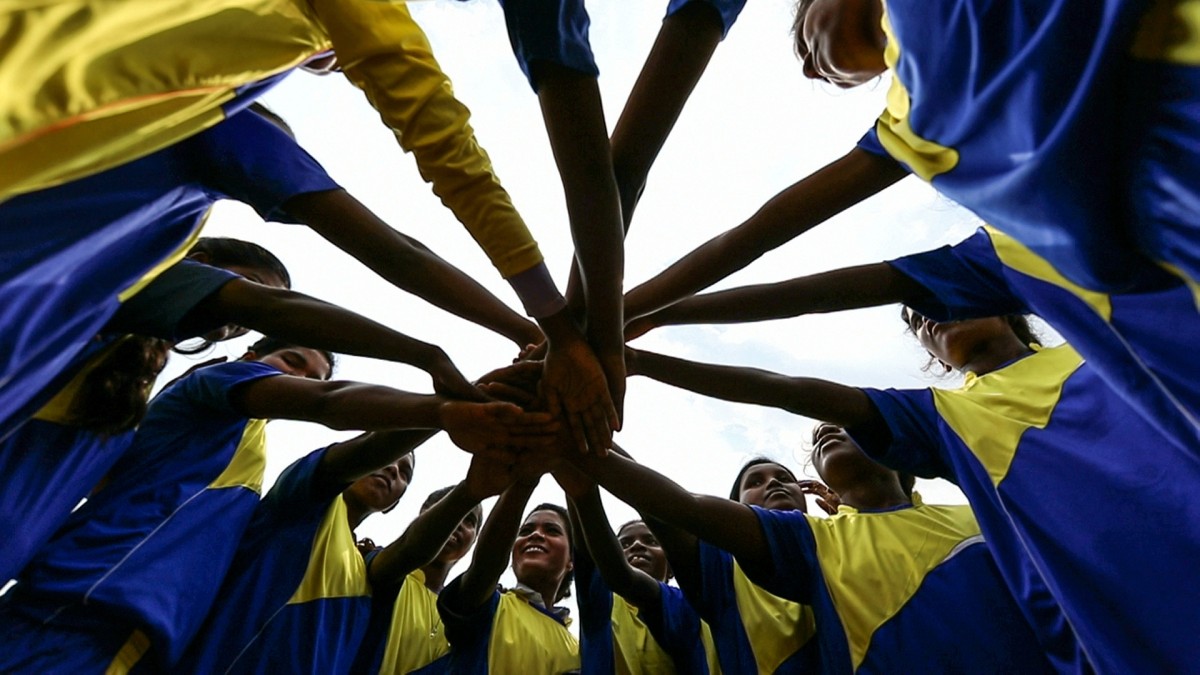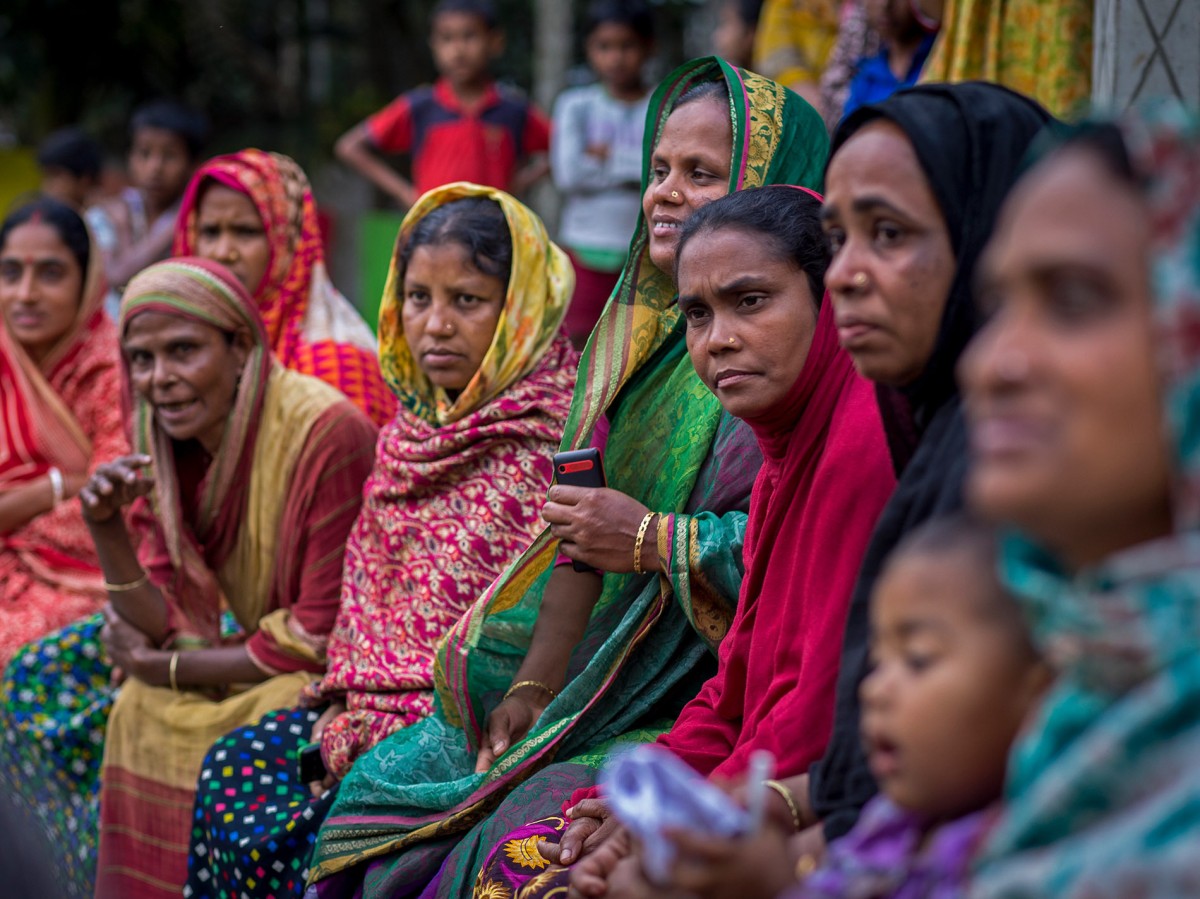Power: is everything going South?
It is safe to say that aid funds are dwindling. UK Aid just cut their Water Sanitation and Hygiene (WASH) budget by 80% and funds available are rightfully so being directed to locally led initiatives. Where does that leave us?

How do we need to change, and what change can we bring about?
Decolonisation, shifting the power, southern leadership, localisation, decentralisation… whatever name you choose to give it, the fact is, as an international NGO we should take responsibility, take a good look in the mirror, and recognise that we are part of the problem. We too have become part of the so-called “aid industry” which does not favour the people it is “designed to serve”.
So, how can we contribute to the solution? Transformation is needed, and Simavi is eager to join forces, across borders and binaries, and aim for the bigger goal and ambition. One that applies to all of us, one of global leadership where we work jointly, and in partnership.
To transform the system to one that is influenced by the principles of equitable inclusion, that redistributes power and resources to those that matter most, the people who are affected by being excluded and whose human rights are being hugely violated.
As partners-in-crime, we cannot do this alone. We need to involve governments, INGOs, NGO, CBOs and community members.
We cannot do this alone
Recently, I was in conversation with the Director of an Ethiopian NGO. He spoke about challenges of brain drain and high staff turnover due to competing INGO (international non-governmental organisation) and UN salaries, which he cannot match. Next, he asked me why Simavi does not have an office in Ethiopia, and I responded with his own answer, that we are not there to compete with them.
We stand in solidarity. We need to do better, for sure, we want to stand side-by-side, although the reality is often still the reverse. Different and difficult. Movement and mobilisation is multi-dimensional – witnessed at different levels from international to local and across different sectors. As partners-in-crime, we cannot do this alone. We need to involve governments, INGOs, NGO, CBOs (community-based organisation) and community members.

The role of communities
We are pleased to see that voices and forums based in the South are emerging, and increasingly informing and owning the conversation about this change. Also in the WASH sector, there is an increasing call from our Southern counterparts to decolonise the way we work, and the way we share, and develop knowledge. Whose knowledge counts. Critical to our work, is the emphasis on the role of communities in grassroots development and social change, embedded in the “#shiftthepowermovement”.
If we want to change the system, we need to address not only the so-called top level, where decisions are made, but find a way to create a critical platform that builds on the premise of gender equality and inclusion at the local level.
Not having a seat at the table, means decisions are made about you, yet women and girls are often the ones left out. Our commitment to feminist leadership is not just about women playing leadership roles, it is about capacitating both men and women, to lead differently, with feminist values and ideology, to advance social justice and fulfilment of human rights for all.
How we can shift, share and shape power
Simavi embarked on its own journey of change. Although difficult to let go of old habits, with a colonial heritage, and despite the limitations in many funding opportunities, we are increasingly trying to find ways to co-create and explore different, equitable ways of working with our partners in the countries we work as well as the international playing field, and how women and girls can play a leading role in that.
To bring about more just and effective development, Simavi is conscious about how to use its own power in support of community-led and women-led development and brings about social change that lasts. At Simavi, “shifting, sharing and shaping” power is a journey we embark on together: with women and girls as the main agents of change, and all the networks, movements and organisations in our programme countries, our Dutch and overseas Simavi staff, other INGOs and the donors we work with.

'We feel both proud and privileged to join other civil society actors in the process of reshaping the future role and organisation of INGOs.'
Joining forces
We feel both proud and privileged to join other civil society actors in the process of reshaping the future role and organisation of INGOs. Being part of the RINGO Social Lab allows us to join forces to think about what we want out of global civil society more broadly, what that would look like from an institutional perspective, and lastly, to identify what needs to change in the wider system.
We can then collectively work towards a future where INGOs – where they still exist – have become open and equitable vehicles for global solidarity, working in genuine partnership with national level civil society (and civil society in other national contexts) to shift power and mobilise resources so that people affected can determine their use.
Together we stand strong!
We want to use our power in a responsible way. Our new strategy looks at what we can do – as Simavi, together with our partners, in our programme countries as well as in Netherlands and globally, and especially women and girls themselves, as the main agents of change.
Leave no one behind and shift the power principles are included in most policies and strategies these days, but how can we make sure that local voices and in particularly women and girls’ voices are included, not just on paper but in practice?
Three core values guide how we partner and work with others from a global leadership and a women-centred perspective: “Shift, share and shape power”.
Simavi is committed to social justice, feminist principles and a lasting positive change. As we embark on this transformation, Simavi’s systems, structures and ways of working will seek to change in order to:
- Shift the power: let our Southern partners lead, in their context, their communities, drive their agenda, and listen to them and hear what they have to say. Their strengths lie in regional/national approaches, but most of all their power of influences centres around the district/community level, which is the space where change in the lives of women and girls is going to happen and where our partners are best positioned to have influence.
- Share the power: leverage our multi-faceted convening, coordinating and catalysing power to enhance transnational learning and bring about influence at international and Dutch level to ensure that women and girls are part of the conversation and get a seat at the table.
- Shape the power: use our women-centred approach and the powerful role of women and girls as change agents as a conditionality for partnering and support. This way Simavi is “downwardly accountable” by putting power and resources into the hands of women and girls and seeking partners who share that same vision.
We might not be big enough to revolutionise the world, but surely, we want to attempt to make the world a better place by doing the right thing, advance global leadership and advocate for social and gender justice, where we have a seat at the table!

